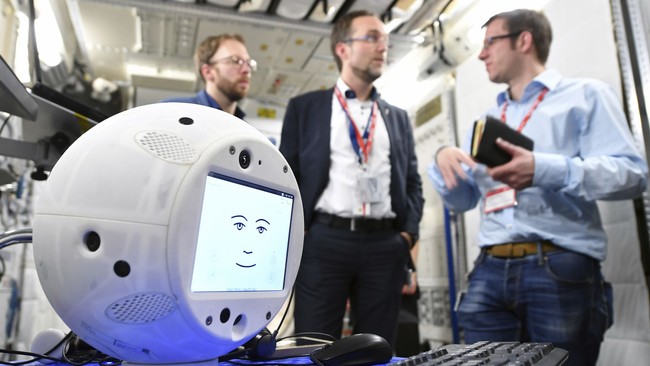There has been a lot of fear-mongering about AI and how it’s going to ruin our lives. Some of it is quite silly. AI, as it is now, is largely used to make funny generated artwork and try to help kids cheat in their English classes (fun fact, kids – teachers know your writing style, so unless you’ve spent weeks training an AI to mimic you, it’s not convincing your teachers).
There is also some great AI-generated music, including this Trump rap.
But there are folks who would utilize AI for more nefarious purposes, and it’s when the government gets its hands on artificial intelligence and begins to weaponize it that I get extremely concerned. My colleague Nick Arama wrote this excellent piece looking at what appears to be a series of articles generated by AI that create a make-believe daughter for former Governor Bill Richardson. The New York Times has a piece this morning detailing how the Internal Revenue Service, for example, is going to utilize it against the big-money deals.
“These are complex cases for I.R.S. teams to unpack,” Daniel Werfel, the I.R.S. commissioner, said in a briefing with reporters. “The I.R.S. has simply not had enough resources or staffing to address partnerships; in a real sense, we’ve been overwhelmed in this area for years.”
Mr. Werfel explained that artificial intelligence is helping the I.R.S. identify patterns and trends, giving the agency greater confidence that it can find where larger partnerships are shielding income. That is leading to the kinds of major audits that the I.R.S. might not have previously tackled.
The agency said it would open examinations of 75 of the nation’s largest partnerships, which were identified with the help of artificial intelligence, by the end of the month. The partnerships all have more than $10 billion in assets and will receive audit notices in the coming weeks.
More audits are likely to come. In October, the I.R.S. will send 500 notifications, known as compliance alerts, to other large partnerships that the agency has found to have discrepancies in their balance sheets. These partnerships could also face audits if they cannot explain the differences in their balances from the end of one year to the start of the next.
But while the focus right now is on big money and business deals, all under the guise of investigating “tax evasion,” the IRS is also signaling that it intends to grow its program, which does not bode well for you and me.
The I.R.S. has said little so far about how it intends to use artificial intelligence to crack down on tax evasion. Mr. Werfel suggested that the technology would be deployed to identify “compliance threats” that have been difficult to spot and that it would help the agency reduce unnecessary audits.
As part of its recruiting strategy, the I.R.S. has been looking to hire data scientists to develop new in-house artificial intelligence tools. Mr. Werfel said that the agency is also collaborating with outside experts and contractors on the project.

Clearly a friend, right?
This is a direct result of the extra $80 billion allocated through last year’s Inflation Reduction Act (thanks, Joe Manchin!) that Republicans warned would lead to an increase in the number of IRS agents out to audit Americans. But this is even more sinister. Think of how efficient it is to train a computer to do all that auditing work for you.
And that’s the thing. This isn’t like the AI of science fiction. Artificial intelligence is still in its generative stage – it isn’t thinking for itself so much as it’s using algorithms to determine what to do based on information it was previously fed. It isn’t thinking for itself so much as using probability and computer coding. But that programming can absolutely be weaponized for far more than the big things, and once you give the government any sort of power, it will try to grow that power.
This is one of those slippery slope situations, and Congress needs to act ASAP to make limit how government agencies can use this technology against citizens.



